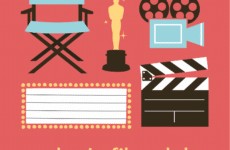By Hannah Lussier | Associate Editor
Communication is key, and junior psychology major, Kelly Richards, knows it. Throughout her work with non-verbal autistic children, Richards has seen the importance of knowing American Sign Language (ASL) firsthand. She says she is not yet fluent but has “always loved sign language” and uses basic signs to communicate with the people she has met at work. Richards’ knowledge of the language and its benefits in a professional environment have led her and others in Salve Regina University’s psychology department to petition for the establishment of ASL as a core equivalent language for students studying in the psychology, social work and education majors.
Currently, the only major at Salve Regina that counts sign language for credit is early childhood education, but Richards thinks that other education majors as well as psychology and social work majors could stand to benefit greatly from learning ASL because they are individuals “who will inevitably come into professional contact” with people who communicate through signing. Richards says that while learning ASL could potentially assist students in any major, “the hope for this initiative is to expand sign language to majors who would benefit” from it most in their future careers. She adds that knowing how to sign is a marketable skill because it prevents the “added intricacy of potentially needing to hire another professional” in the workplace as a translator.
In talks with the Student Government Association, faculty members, administrators, and peers, Richards has noticed that there is a lot of support for the initiative and feels that the buzz surrounding the issue is starting to make an impact. However, she states that one of the most difficult obstacles in making the plan a reality is helping others to understand that, just like any other language, signing has a culture. This culture, known as “deaf culture” has produced a number of films, books and works of art since its “recent conception” in the 1980s. Richards says that these works “are born out of the shared experience” of the deaf community and are an essential part of understanding the necessity for the study of ASL.
Richards thinks that, as a mercy institution, Salve Regina should be interested in widening its scope to include ASL as a core language. She cites the most famous lines in the University mission when she states that “it is hard to work and live harmoniously, justly and mercifully with those whom you can’t communicate”.
The work of Richards and her peers has definitely made an impression on campus as, at the publication of this article, 145 people have signed the petition to make sign language a core language option for psychology, social work and education majors on Change.org (see link below). But in order to make real change happen, the plan still needs support. Richards states that many students have already approached her “in hopes of lending a helping hand to spread the word” but that she encourages all Salve students who care about this issue to talk to their friends, share the petition on social media and get more people to sign on. “There are millions of people in the world who turn to sign language” as their voice, and this initiative is meant to empower them.
If you would like to sign the petition, you can do so here.














